Greenbrier River Watchdogs Alarmed as Mountain Valley Pipeline Drills
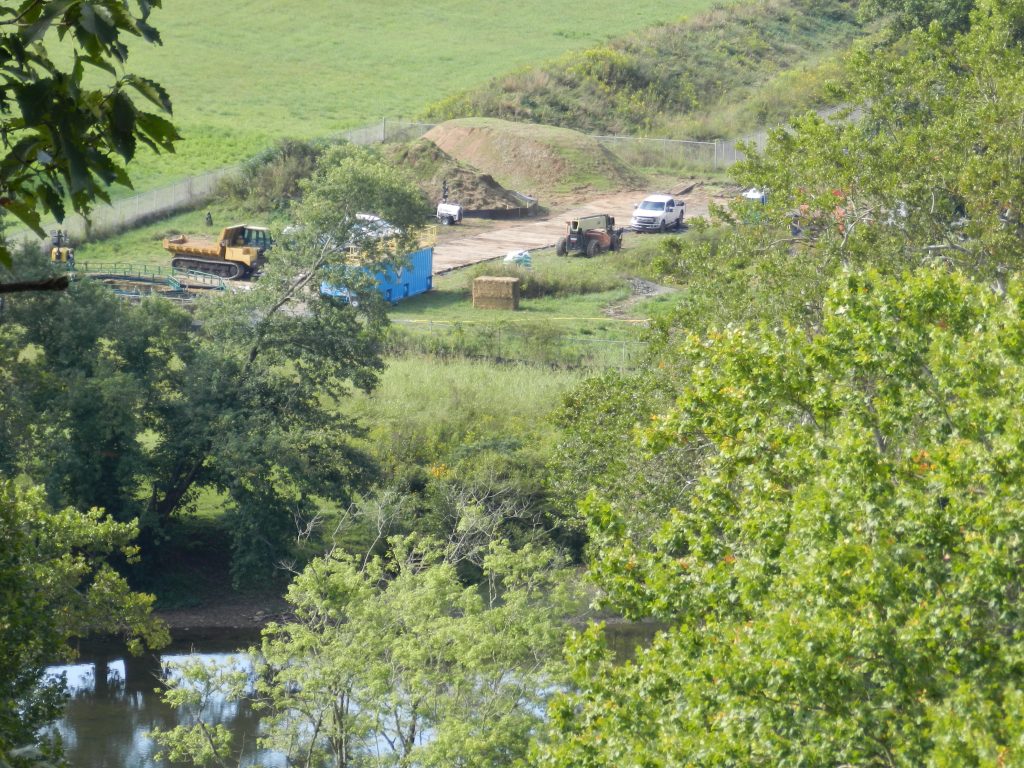
Mountain Valley Pipeline has begun drilling under the Greenbrier River in preparation for installing pipe. Photo by Autumn Crowe
Mountain Valley Pipeline has begun boring to place pipe under the Greenbrier River near Talcott, West Virginia, in Summers County — and local residents and protectors of the river are incredibly concerned about the risks that poses.
“The Greenbrier flows into so many other rivers,” says Deni Elliott, board member of the Greenbrier River Watershed Association. “It’s an important part of the water system for the Eastern United States. Do you really want to mess with this? It’s precious.”
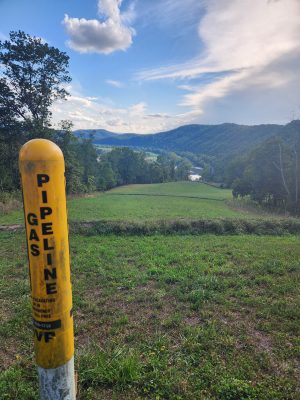
A warning marker designates the right-of-way for the Mountain Valley pipeline overlooking the Greenbrier River. Photo by Autumn Crowe
“Water crossings are the most technical part of the construction process,” she says. “We’ve already seen crossings go wrong in previous construction, which doesn’t lead to much confidence — especially now that they are rushing through to complete the process, cutting corners and overworking their employees. That’s a recipe for disaster.”
The timeline for completing the crossing has been greatly compressed, Crowe noted. Initially, MVP said in regulatory filings that the crossing would take 120 days to finish. In a recent letter to the West Virginia Department of Environmental Protection, the estimate was 84 days. And, recently, Tom Karam, CEO of MVP developer Equitrans, said it would only take two weeks. There are many ways for things to go wrong, according to Crowe, as the company bores a 1,250-foot long hole 13 feet below the streambed.
“MVP is pumping out up to a million gallons of water out of the Greenbrier, which is in low-flow conditions as it is,” she says. “They are mixing that with bentonite mud to lubricate the drill rig. They then have to properly handle that slurry. The bore pits are below the water table. They’ll fill up with water, and that muddy water will have to be pumped out of the pits.”
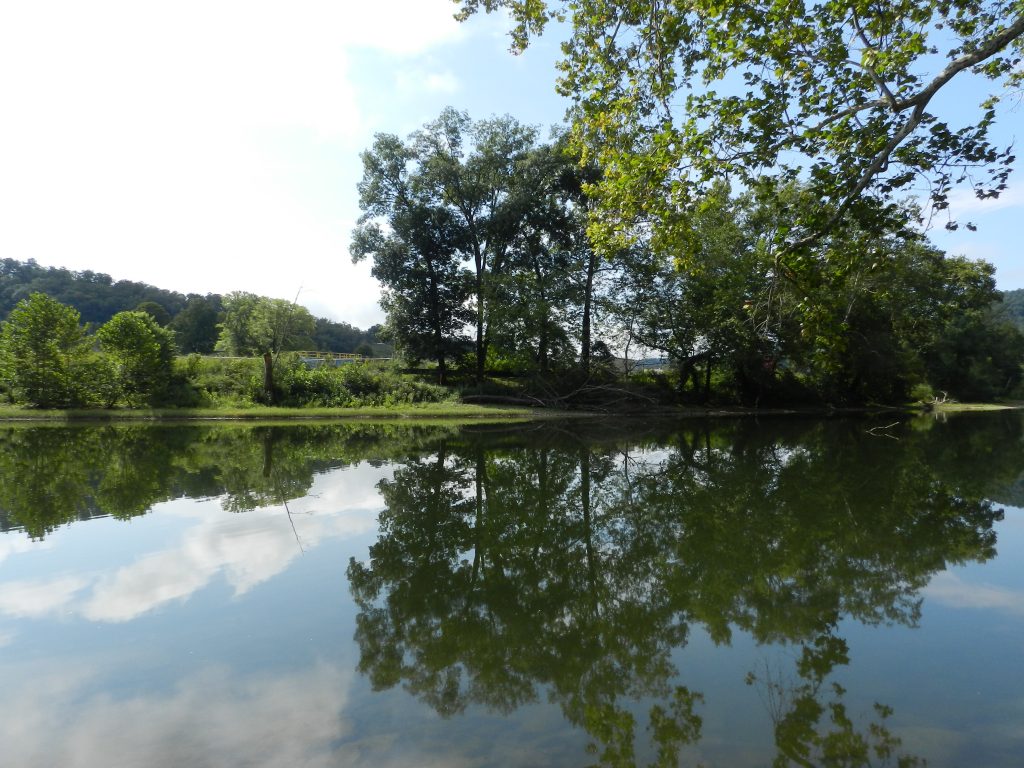
The drill site for a section of the Mountain Valley Pipeline going under the Greenbrier River can just be seen on the opposite side of the river. Photo by Autumn Crowe
When that happened while Energy Transfer was constructing the Rover pipeline under an Ohio wetlands, it resulted in the release of 2 million gallons of drilling mud. A similar incident beneath a Pennsylvania lake spilled 200,000 gallons of mud during construction of the Mariner East Pipeline.
Crowe and Elliott are also concerned that the pipeline coating material — degraded after pipes remained uncovered, out in the sun through years of project delays — will end up in the river, especially if the coating contains per-and polyfluoroalkyl substances, carcinogens commonly known as PFAS or “forever chemicals” because they do not break down over time.
“There’s a public water intake right downstream from where they’re boring,” Crowe says. “Any pollutants that go into the Greenbrier are going to impact the drinking water source of that whole community.”
The watershed association is applying for a grant to test water downstream from the boring site.
“With all these dangers hanging around the Greenbrier River watershed, we’ve been really diligent trying to protect this pristine water we have,” Elliott says. “It is going to be so valuable. We need to make sure it’s going to be there for the next generations.”
In addition to drinking water, pollution could also impact aquatic life in the river.
“The green floater mussel population in the Greenbrier has been in decline,” Crowe says. “There’s been a lot of work to try to bring those populations back to a healthy level. Any pollution in the Greenbrier is going to further impact those mussel species, and they are very sensitive to sedimentation.”
The immediate prospect of pollution from the boring process isn’t the only concern.
“I’ve got all kinds of concerns about how it will impact the community with noise and the lighting from working around the clock,” Crowe says. “It’s also migratory bird season. I’m making sure I’m turning all my lights off at night, but MVP will have these huge stadium lights going. Also school is now in session, and you have all the heavy equipment driving these rural back roads. That poses a safety risk.”
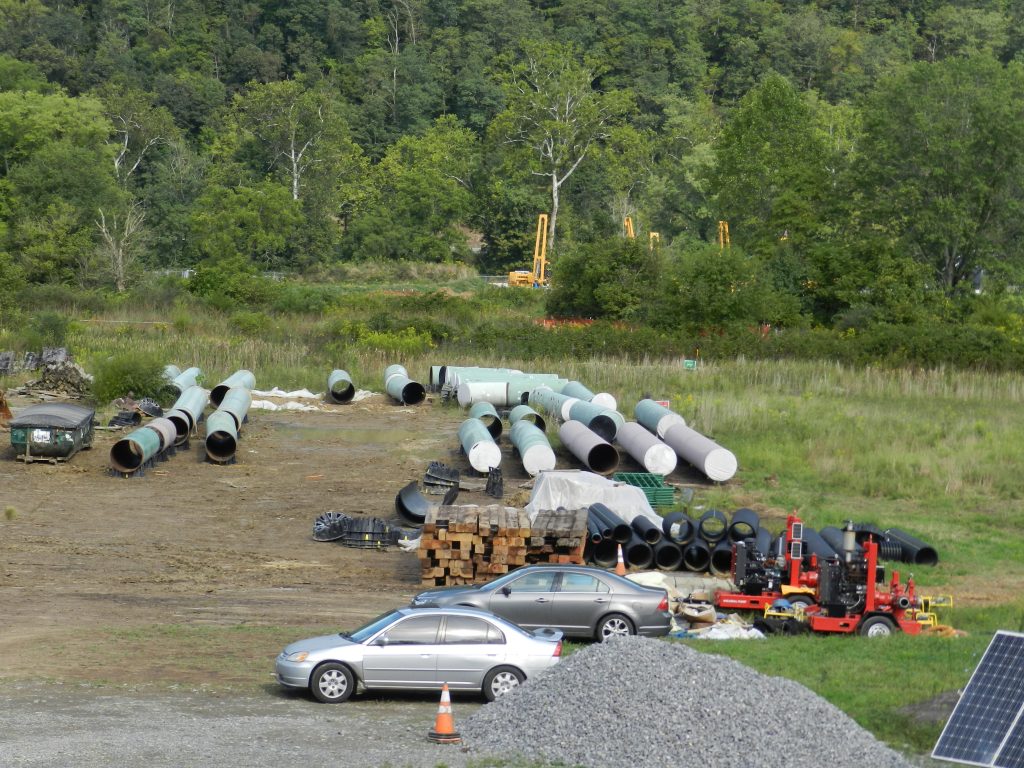
Pipes staged near the river have been sitting exposed to the elements for years, raising concerns about the integrity of the protective coating. Photo by Autumn Crowe
Elliott worries about the broader impacts of the pipeline if it goes into service.
“The climate change thing, of course, is a huge impact,” she says. “We don’t need more gas and oil. We are wreaking havoc on an environment that is already really tenuous. We’re losing billions of dollars to ‘natural’ disasters. We’re losing lives to fires and hurricanes. … There are impacts that a lot of people don’t see unless you know someone who’s been in one of these disasters.”
The act of Congress that forced federal agencies to reissue permits that had been revoked by federal courts — and stripped those courts of jurisdiction to review the new permits — also deeply concerns Elliott.
“My main focus is the destruction of our constitutional rights in this MVP issue,” she says. “Personally, I have grandchildren. I don’t want them to have less democracy than I have. That’s ridiculous. And I don’t want them to have a less clean environment than I have. I don’t want us to turn around and trash their environment for them, just for profit. And MVP is all about profit.”
Related Articles
Latest News

Leave a comment
Your email address will not be published. Required fields are marked *


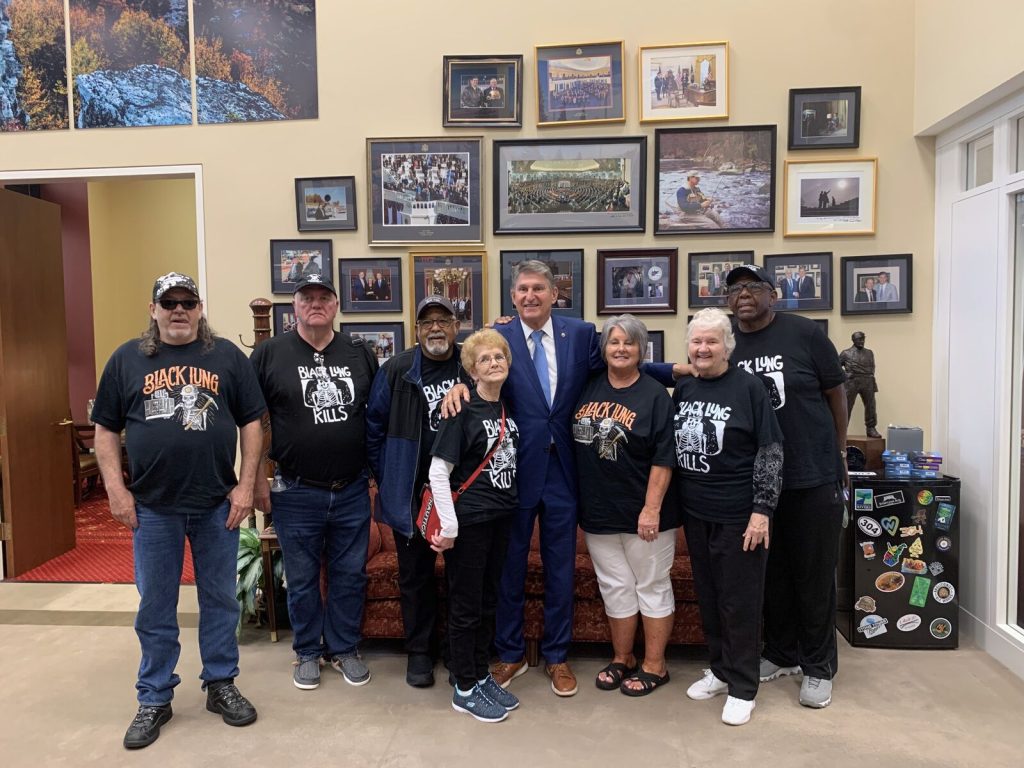
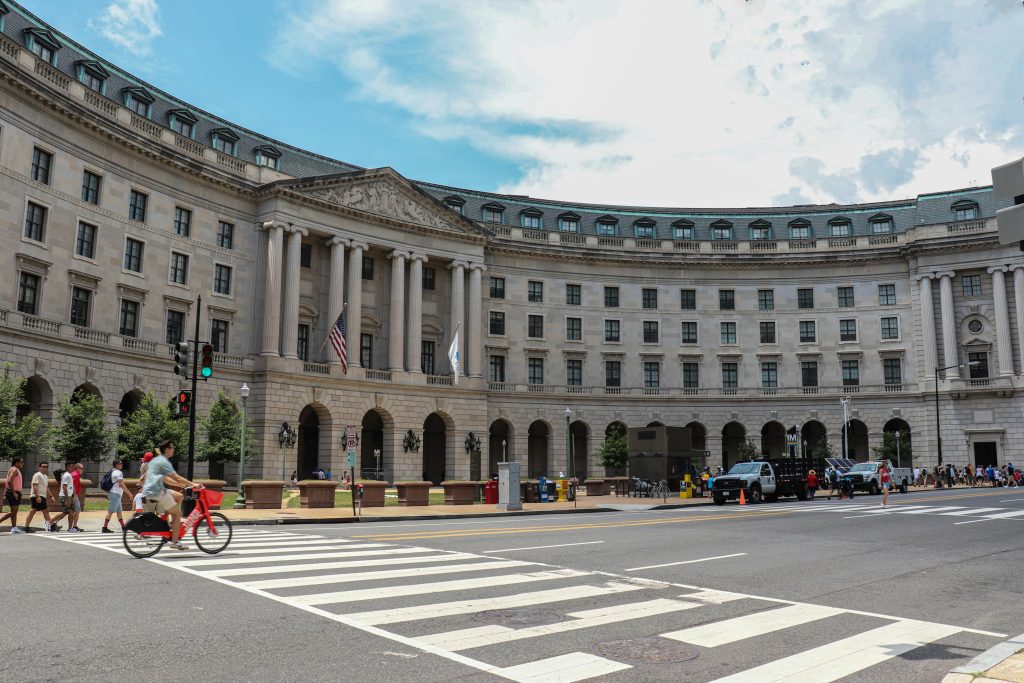

Where are the protests? Where’s the media outreach? Outrage? This pipeline will be radioactive and they plan to let it decompose where it lays when done with it. I care about sediment sure- but when are you folks going to start saying what the REAL issue is? Like how ALL the water along this pipeline will be ruined, forever! The entire state needs to be alerted! They plan to frack most of the state and use up our water doing it. This is murderous. And no one has the courage to say radioactive. We need a mother Jones but you’d be mad cuz she’s not pc. She wouldn’t be concerned she’d speak the truth and rally people. She’d educate people about what’s happening- inspire them. The movement here draws almost no attention. The people on the pipeline route don’t even know about it. I know I worked along it’s route and no one knows. It’s just terribly sad.
No one can stop “Big” oil or gas. Congress and the courts will always back the oil and gas and coal industry. They have the money. As the saying goes, “ye who has the gold has the control.” The earth that God created is being slowly destroyed by mankind. The best I can pray for is that it doesn’t happen in my life time. Who and what can save our children. Very sad. Why do we vote for Congressmen that support “big oil?”
Please, please do not allow this Mountain Valley pipeline
to go through our beautiful mountains in Virginia. It is a major accident waiting to happen.
Stop Mountain Valley pipe line